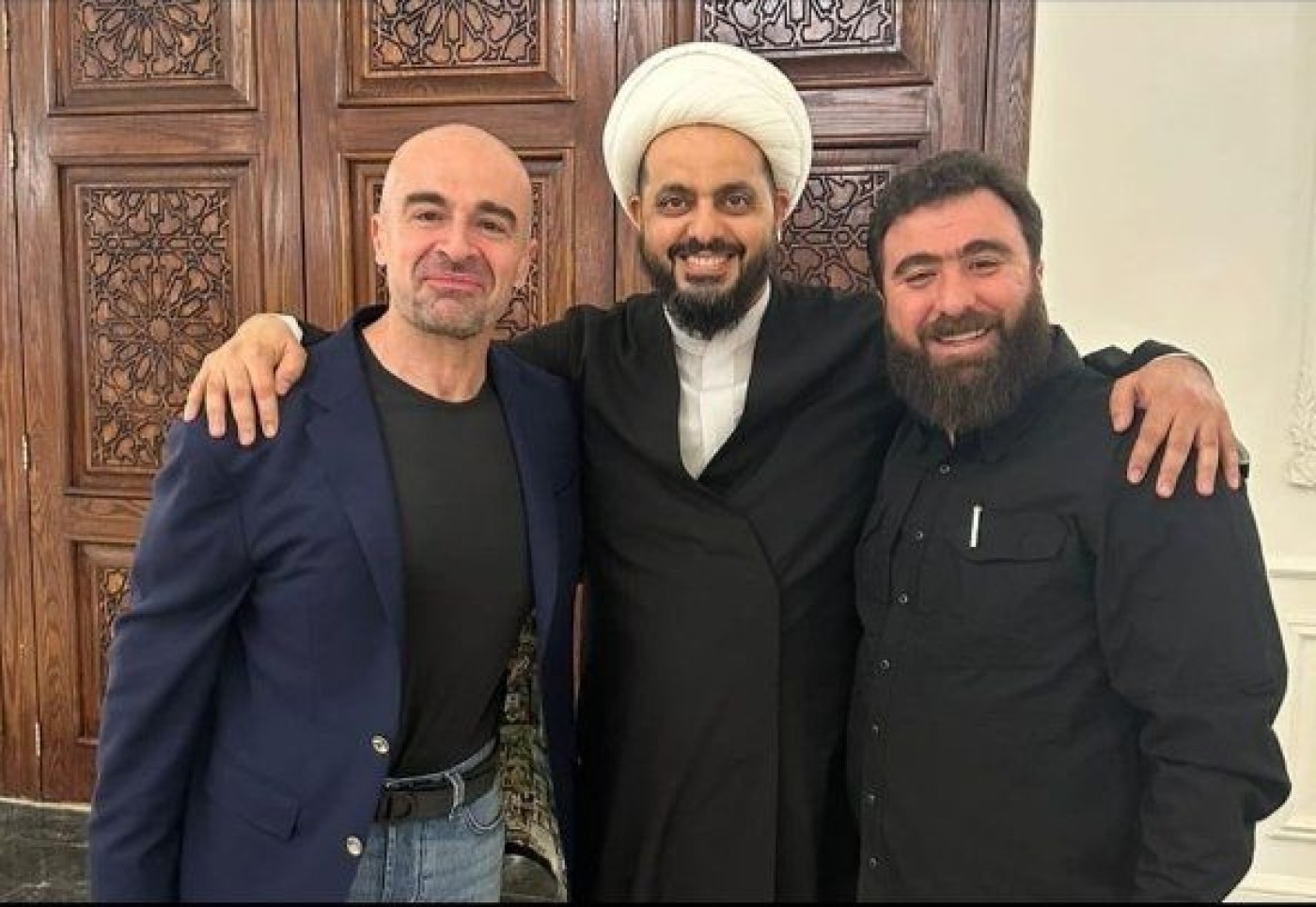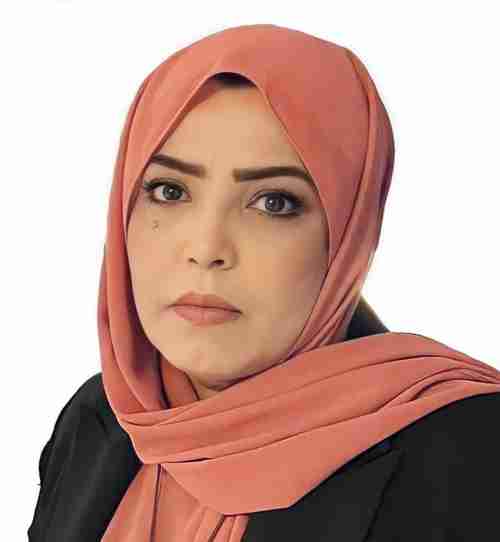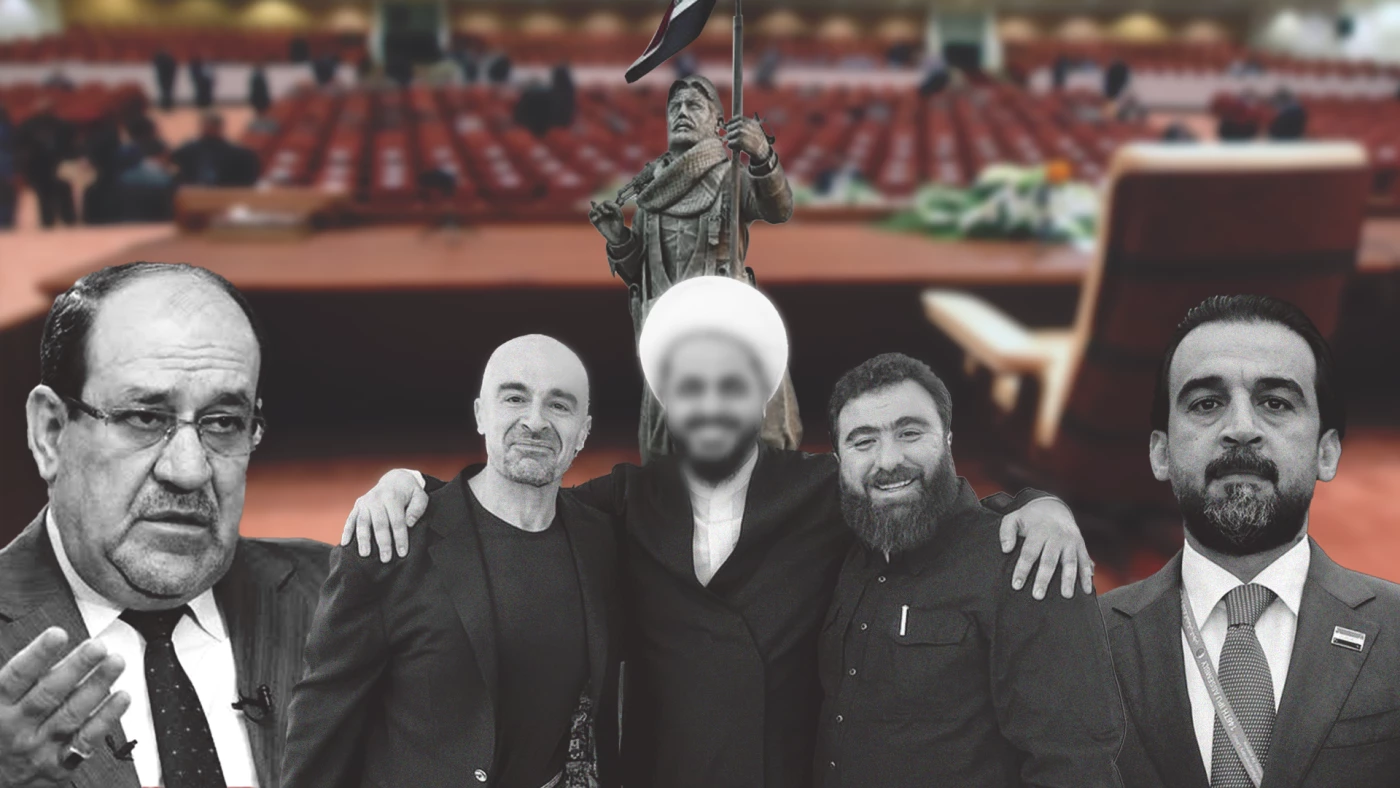On August 5, Nouri al-Maliki, the former Iraqi Prime Minister and one of the key leaders of the ruling Shiite Coordination Framework, held two meetings with the leaders of the major Sunni political forces in an attempt to reconcile their views and expedite the nomination of their candidate to fill the position of Speaker of Parliament, which has been vacant since November, after the dismissal of Mohammed al-Halbousi, the former Speaker, on charges of forgery.
The first meeting was attended by Halbousi, leader of Taqaddum, along with four leaders of the Coordination Framework, including Hadi al-Amiri, leader of Badr Organization, and Ammar al-Hakim, leader of Hikma Movement.
During the meeting, Halbousi made numerous proposals to resolve the crisis, the most prominent of which was reopening the nomination process in the parliament to open the door for new candidates to fill the position.
His opponents would nominate three new names - one of which he would choose - or his opponents giving up one of the ministries from their share in exchange for the positions, politicians who were briefed on the meeting told The New Region.
Two hours later, a second meeting was held, this time attended by four Sunni politicians representing political forces competing with Halbousi and demanding the position of speaker of parliament.
The meeting was also attended by representatives of the two key Kurdish political forces and four leaders of the Coordination Framework, Aqeel al-Fatlawi, spokesperson for Maliki’s State of Law parliamentary bloc, told The New Region.
Those present discussed the latest developments related to the internal Sunni stands and proposals presented by Halbousi.
At the end of the session, the representatives of the Sunni forces opted to give up one of their ministries to Halbousi in exchange for the position of speaker, Fatlawi said.
But, they asked for 24 hours to come back with their candidate name and determine the ministry they would give up in favor of Halbousi.
What none of the attendees knew was that a simultaneous such meeting was taking place elsewhere with Halbousi, to finalize a settlement that had began taking shape on the ground days prior.
The meeting - which Halbousi apparently attended immediately after leaving Amiri’s house where he met Maliki - was at the home of Qais al-Khazali, the commander of Asaib Ahl al-Haq, one of the most powerful Iraqi armed factions and a key leader of the Coordination Framework, three Shiite politicians close to Khazali told The New Region.
When the leaders of the Coordination Framework met later that evening to discuss and evaluate the results of Maliki’s meetings with the Sunni Parties, Khazali briefed them on the latest developments in the settlement he is working on with Halbousi and other allies, which will lead to ending the crisis.
This is said to have infuriated Maliki who left the meeting “in protest of Khazali’s interference and his attempts to undermine his efforts to dismantle the crisis,” a Shiite politician familiar with the talks told The New Region.
“Maliki had an agreement with Halbousi’s rivals to support their candidate, Salem al-Issawi, for speaker’s position in exchange for supporting his candidate for governor in Diyala,” the politician said.
“They fulfilled their promises and supported his candidate in Diyala, and he was going to support their candidate for speaker of parliament, but Khazali’s moves sabotaged this agreement and blocked Issawi’s way.”
The representatives of the Sunni political forces who met Maliki did not return. Instead, they issued a statement the next day stating their rejection of the agreement and their decision to “proceed with holding a session to elect a speaker and to adhere to the previous norms that led to the selection of previous Speakers of Parliament,” the statement read.
Kirkuk is the gate
The meeting between Khazali and Halbousi that day was not the first, as the two men have been in touch to follow up what they had started weeks ago, “and was much bigger than being limited to choosing the next speaker of parliament,” Shiite and Sunni politicians said.
The major breakthrough in Diyala on August 2nd, was the first fruits of the two men’s efforts.
Khazali, the most Shiite dynamic leader in the Coordination Framework in recent years, who has been rapidly moving towards the forefront of the Shiite political scene, has succeeded in presenting himself as a key playmaker over the past few years.
Naming Mohammad Shia’ al-Sudani as Prime Minister and adopting his government following the withdrawal of the Sadrists in June 2022 was one of his greatest successes as a political key player as his party sponsored Sudani’s rise to power.
However, Khazali's allies and opponents say he is currently on a frantic quest to present himself once again as a kingmaker.
Khazali chose Kirkuk, the northern oil hub and the disputed province between Baghdad and Erbil, to be his gateway to mobilize the required support for his ally’s candidate for the presidency of parliament.
Kirkuk, which witnessed provincial council elections last year for the first time since 2005, did not produce a clear winner from its local elections, as the Arab, Kurdish and Turkmen electoral lists shared its 15 seats in addition to the quota seat that became the share of Christians.
The negotiations that all the winning electoral lists engaged in did not lead to any results over the past ten months, due to the insistence of all parties on obtaining the position of governor, the highest administrative and security executive authority in the governorate.
Khazali convinced his allies, Bafel Talabani, leader of the Patriotic Union of Kurdistan (PUK) who won five seats in the recent provincial council elections, and Ryan al-Kildani, leader of the Babylon Movement who won the quota seat, to join together and work with Halbousi to form the local government in Kirkuk, source told The New Region.

The big challenge facing everyone was to get the majority that would secure the required quorum of half plus one to proceed with the vote and choose the governor, his two deputies, the head of the provincial council and the rest of the leadership positions.
Halbousi, in turn, convinced his ally, Mohammed Tamim, the current Minister of Planning and the second deputy to Iraq’s prime minister, who controls two seats in the provincial council, to join the deal, while everyone worked to attract another member to achieve the required quorum.
The architects of the coalition that produced the new Kirkuk government invested all their cards to make their efforts successful, so they offered huge sums of money, properties, government positions, and an exchange of benefits to convince some Arab and Turkmen members of the provincial council to join them, several sources said.
However, only three members joined them.
"This government has nine seats. It will remain an unstable government if there will be no serious dialogues to solve this problem," Majid Shingali, a prominent Kurdistan Democratic Party (KDP) leader, said in a televised interview on Tuesday.
"The PUK limited Kurdish representation to its members, and the three Arab members who joined them were bought with money.”
Iraqi President Abdul Latif Rashid issued a presidential decree on Tuesday appointing Rebwar Taha, member of PUK’s leadership council, as governor of Kirkuk, concluding the marathon of forming the Kirkuk local government and crowning Khazali and Halbousi as the new sponsors of the province.
“Kirkuk has its own characteristics and the conflict there is Arab-Kurdish-Turkmen. Each party’s insistence on an opinion has prevented the formation of the (local) government over the past months,” Ahmed al-Kanani, a member of the Sadiqun parliamentary bloc-led by Khazali, told The New Region.
“We believe that the stability of Kirkuk is a guarantee for the stability of the surrounding areas (the northern and western parts), so a local government had to be formed to ensure the stability of the province.”
“Sheikh Qais invested his acceptance from all parties there and urged them to reach an agreement and bring their views closer together. Thank God, he succeeded in doing so,” he added.
“He [Khazali] was the official sponsor of the agreement from which the Kirkuk government emerged.”
The list of rivals goes on
Although the settlement concluded in Kirkuk guarantees that all ethnic and political components of Kirkuk will receive their dues, and also guarantees a periodic exchange of key administrative and security positions between Arabs and Kurds, the exclusion of the Kurdistan Democratic Party, the second biggest Kurdish party in Kirkuk and the Turkmen Front, is expected to create uncertainty.
In Diyala, the deal concluded was not much different from the Kirkuk deal, but it lengthens the list of Khazali’s opponents.
During the last nine months, all attempts to reach a settlement that would satisfy all influential parties in Diyala had failed.
The drivers of conflict in Diyala are intertwined and are based on deep-rooted sectarian, ethnic and political differences.
The results of the recent provincial council elections in Diyala were also inconclusive, as none of the winning electoral lists obtained the number of seats required to proceed with the formation of the local government.
Muthanna al-Tamimi, a Badr Organization leader and former governor of Diyala, emerged as the biggest winner in the provincial elections, with his electoral list obtaining four seats out of 15.
Khazali’s veto against Tamimi prevented him from being named governor for another term.
He turned his back on Diyala to avoid clashing with his Shiite partners, so he obtained an alternative share in another province, Shiite leaders said.
The shuttle movements of the new partners, Halbousi and Khazali, brought together the other parties, leaving the position of the head of the provincial council to the Sunni businessman Khamees al-Khanjar, who won three seats, while the two deputy governor positions went to Halbousi, who also won three seats. Khazali got the position of deputy head of the provincial council despite winning only two seats.
The efforts of the two men resulted in the formation of the new Diyala government on August 2nd. Tamimi, Khazali’s local rival, came away empty-handed from this deal, Shiite and Sunni leaders told The New Region.
“Halbousi is our opponent, but that doesn’t mean we should turn our backs on any agreement or deal that preserves our rights,” a leader close to Khanjar told The New Region.
“In Diyala, we made a deal with Maliki and Halbousi, while Khazali took over the agreement with the other lists,” he added.
“Our deal with Maliki was to support his candidate for governor in Diyala in exchange for his support for our candidate for speaker of parliament.”
Halbousi-Khazali partnership leads to instability
The Halbousi-Khazaali adventure in Diyala and Kirkuk, the fruits of which are expected to be reaped in the parlament soon, changed the map of political influence and opened the door wide for opponents from Sunnis, Kurds, Turkmen and Shiites to strike previous alliances with the Coordination Framework, which threatens security chaos in areas of joint influence, including Nineveh, Salah al-Din and Babylon, in addition to Diyala and Kirkuk, leaders said.
Kurdish, Arab and Turkmen opposition leaders said the vote on the local government in Kirkuk was illegitimate and that those in charge of it were involved in several legal violations.
The National Turkmen Front has filed a lawsuit with the Federal Court to decide on the matter.
KDP leaders who spoke to The New Region said that excluding a number of Kirkuk’s components and imposing a “fait accompli” on them will destabilize the political situation in the province and hinder the work of the local government.
However, Khazali’s Shiite partners expect that the situation in Kirkuk and Diyala will explode and the nearby provinces will be impacted.
“The policy of imposing their will and breaking bones that Khazali and Halbousi have adopted with their partners will lead to an explosion of the situation sooner or later,” a leader of Hikma declined to be named, told The New Region.
“No one denies the failure of the Shiite leaders in Diyala and Kirkuk, but settling the disputes in this way will have a high price.”
Roulette Player and Mastermind
It is unclear when the partnership between Halbousi and Khazali began, but it is likely that Halbousi visited Khazali in March, five months after his dismissal, to confirm his insistence on the position of parliament speaker as a share of the Progress Alliance, the largest Sunni political coalition led by Halbousi.
Since then, a deep harmony has emerged between the two men.
The breakthrough in Diyala, which was followed by a greater breakthrough in Kirkuk, and is expected to be reflected in the process of selecting the new Speaker of Parliament, is the result of a major settlement that included the three files and is the fruit of cooperation between the “roulette player,” as Sunni leaders like to describe Halbousi, and the “mastermind,” as Shiite leaders describe Khazali, Shiite, Sunni and Kurdish leaders, said.
Observers and opponents say that what unites the two men is greater than what separates them. Both are ambitious young men who aspire to break the stranglehold imposed by traditional Iraqi political leadership.
However, their ambitions and their eagerness continues to provoke several people in the Iraqi political scene.
Khazali’s impetuosity, partnerships, and unconventional ideas embarrassed his Shiite allies and deepened the disputes within the Coordination Framework that has been plagued by problems for years.
“Khazali presented a model of the Shiite leader that is different from the traditional, rigid model that we have been accustomed to since 2003 until today, so it is natural that he would provoke the ire of some Shiite leaders who see that he is risking everything they have achieved to date,” a Shiite leader close to Khazali, said.
"The Shiite leaders have been unable to solve the problems of Diyala and Kirkuk for nine months, and they have also been unable to solve the problem of the vacancy of the position of the Speaker of Parliament, while Khazali solved these three files in one deal,” the leader added.
"The problem with the Shiite leaders is that they do not think outside the box and do not dare to leave their old alliances and red lines after everything that has happened.”



 Facebook
Facebook
 LinkedIn
LinkedIn
 Telegram
Telegram
 X
X


